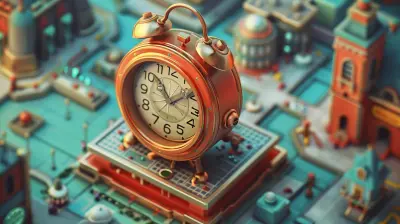The Magic System: How RPGs Innovate with Spells and Abilities
6 August 2025
When you hear the words "magic system," chances are your imagination starts to wander. Maybe you picture wizards flinging fireballs, clerics summoning divine blessings, or sorcerers bending reality to their will. Or, if you're a fan of RPGs (Role-Playing Games), you probably think of the spellbooks, mana bars, and flashy abilities that make adventuring so darn fun.
But have you ever stopped to think about what makes magic systems in RPGs so compelling? Why do some games have spells and abilities that feel truly innovative while others feel, well... kind of generic? Let’s dive into the mystical world of RPGs and explore how game developers weave creativity, rules, and gameplay mechanics into the magic systems we love. By the end of this, you’re bound to see spells and abilities in a whole new light.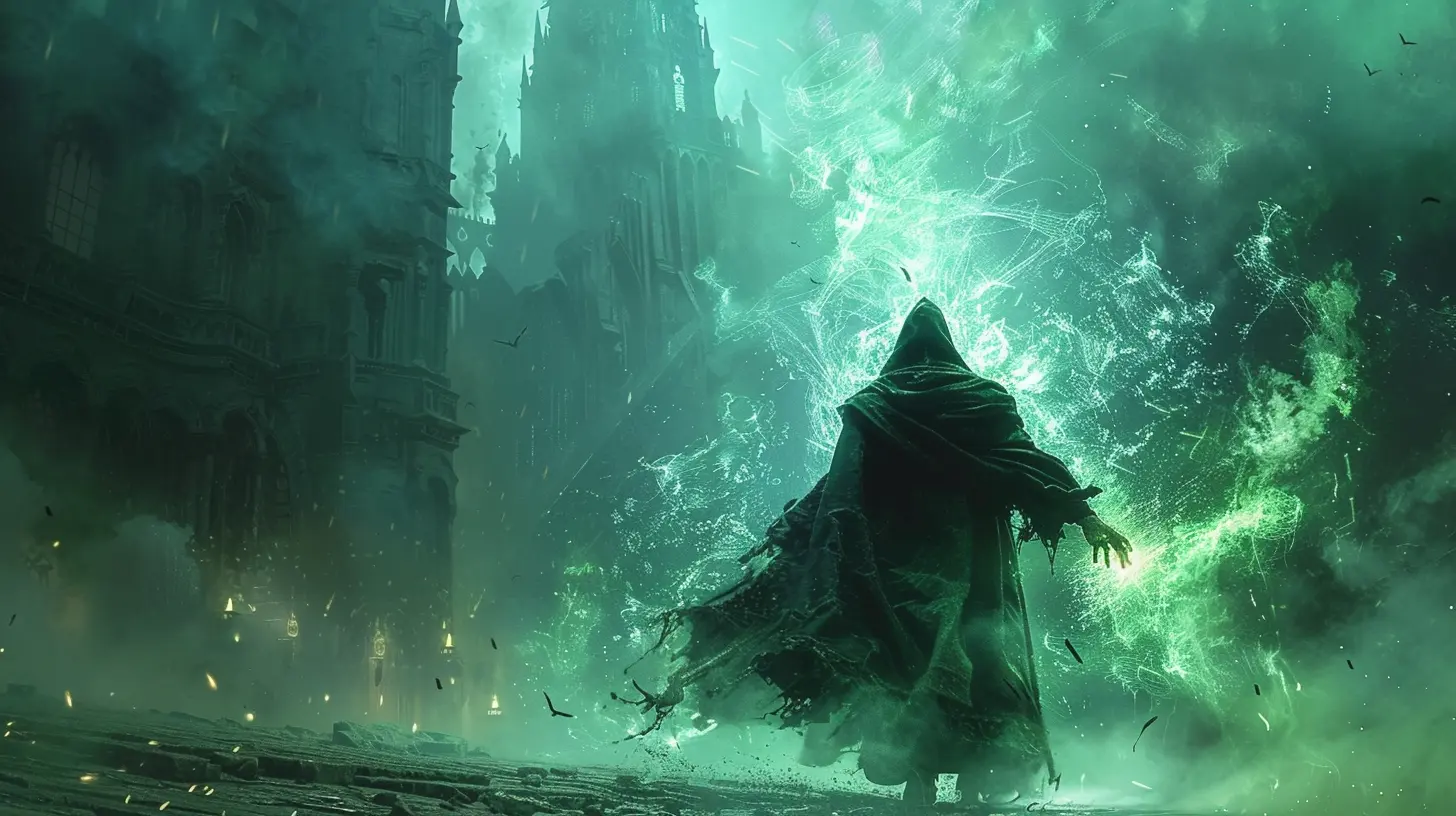
What Makes a Magic System Memorable?
So, what separates a truly memorable magic system from one you're likely to forget by the time you switch off your console or leave the gaming table? It's not just about bombarding players with a laundry list of spells (though more options can be fun!). The best systems balance creativity with functionality while keeping the experience immersive.Think of it this way: a good magic system is like a recipe. It needs the right ingredients—flavor, originality, and mechanics—but also the right proportions. Too much complexity and you risk overwhelming the player. Too little, and it feels like something's missing. The magic system has to serve the gameplay, enhance the story, and make the player feel powerful.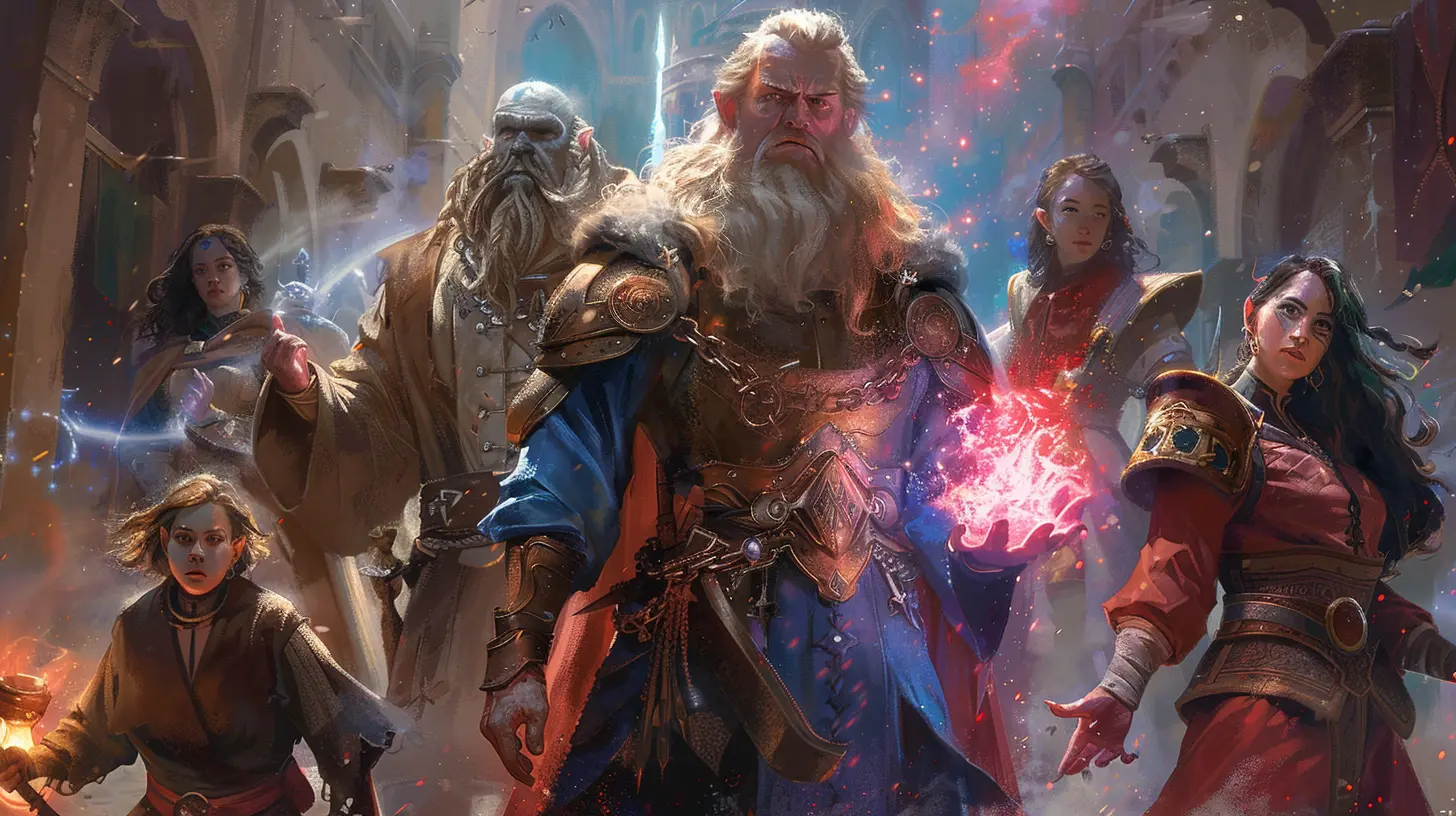
Exploring Innovation in RPG Magic Systems
Now, let’s unravel how developers keep pushing the boundaries of your typical fireball-and-healing magic setup.1. Unique Spell Mechanics
Standard fireballs are fun and all, but players crave more than just damage numbers! The most innovative RPGs give their spells a twist, adding new layers of depth. For example, instead of just dealing damage, some games let you manipulate the environment with your abilities. Set fire to a forest to block pursuing enemies, freeze a river to create a makeshift bridge, or summon a storm that disrupts enemy projectiles.Games like Divinity: Original Sin 2 shine here. In its combat system, spells interact with surfaces like oil, water, and poison. Toss a fireball at an oil puddle, and boom! You’ve got a fire explosion. Freeze a water puddle, and suddenly, enemies are slipping around like they're on an ice rink. It’s the kind of system that rewards creativity, and honestly, who doesn’t love feeling clever?
2. Narrative Integration
Magic isn’t just a gameplay mechanic—it’s also an integral part of many RPG worlds. Great magic systems tie directly into the lore of the game, making the abilities feel like a natural extension of the universe.Take the Elder Scrolls series, for instance. Magic in Tamriel isn’t just about flashy effects; it’s tied to the world’s history, gods, and different cultures. Whether you’re learning Shouts as the Dragonborn in Skyrim or perfecting alchemical spells in Morrowind, magic feels like an essential piece of the worldbuilding. It’s like discovering a hidden layer of the game, and it keeps you immersed.
3. Player Customization
Cookie-cutter abilities? Hard pass. Modern RPGs let players tailor their magic systems to fit their playstyles. You’re no longer just the mage in the pointy hat; you’re your mage.Games like Path of Exile and Diablo 4 take customization to another level, offering sprawling skill trees where you can tweak your abilities. Want your lightning bolt to chain across multiple enemies? Or maybe you’d prefer your fire spell to heal allies while burning foes? These systems let you experiment, and that freedom is what keeps players invested for hours.
4. Resource Management
Let's be honest: hurling powerful spells with no limits gets stale pretty quickly. The most engaging magic systems are those that force you to think carefully about when and how to unleash your power.Resource management is where games like Dungeons & Dragons excel. In D&D, you have spell slots, so you can only cast a limited number of powerful spells each day. Do you use your last fireball now, or save it in case a dragon shows up later? That tension makes every decision meaningful.
On the video game side, Dark Souls introduces an intriguing twist. Instead of mana, you expend health when using certain magical abilities. This creates a risk-reward dynamic that feels both punishing and exhilarating. Do you sacrifice your own safety for a powerful attack? Now, that’s a tough choice.
5. Evolving Spells and Growth
A good RPG makes you feel stronger over time, and magic systems are no exception. Leveling up your character should feel like gaining access to new realms of power. The best games balance this progression by making you work for it.Take Final Fantasy VII’s Materia system. As you use certain magical orbs, they “level up,” unlocking stronger versions of your spells. A simple Fire spell becomes Fira, then Firaga, and eventually a planet-burning inferno. Watching your abilities evolve just feels so satisfying. It’s like nurturing a little magical baby into a godlike powerhouse.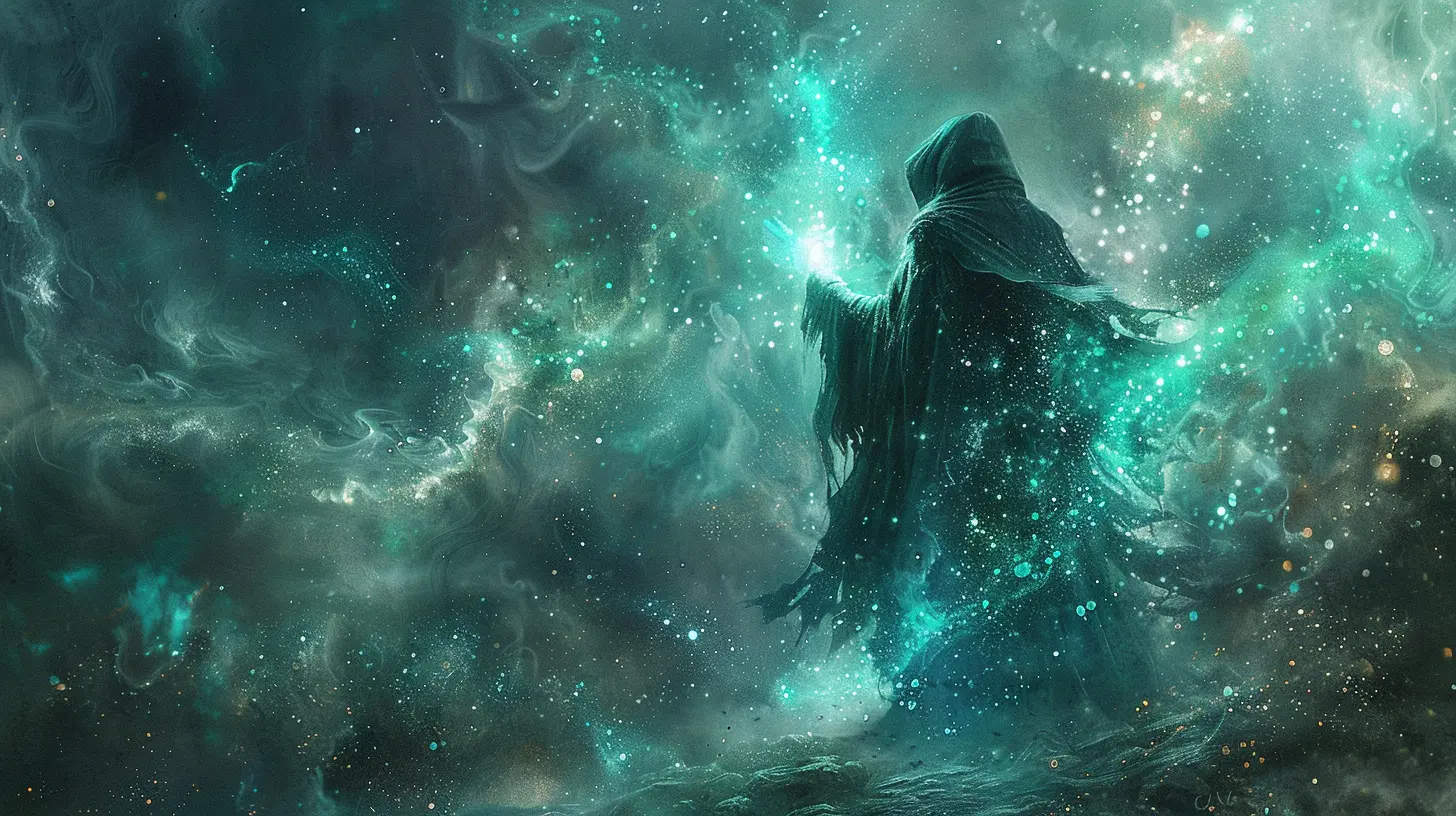
The Role of Innovation in Modern RPGs
RPGs are a melting pot of ideas, and magic systems are the perfect playground for developers to experiment. What's even more exciting is how technology has opened up entirely new possibilities for magic in gaming.1. Physics-Based Magic
Advancements in game engines like Unreal and Unity mean that developers can now create magic systems based on real-world physics. Games like The Last Spell and Magicka let you combine elemental powers in mind-bending ways. These systems encourage emergent gameplay, meaning players can create entirely new strategies the developers didn’t even think of. It’s like handing someone a toolbox instead of a finished puzzle.2. AI-Driven Opponents
With AI becoming more sophisticated, enemies in RPGs are getting smarter. This, in turn, has pushed magic systems to adapt. No longer can you just spam the same spell; enemies will anticipate your moves and force you to think on your feet. What if a boss learns to absorb electricity after you use it too many times? This kind of dynamic interaction keeps players engaged.3. VR and Immersive Experiences
Virtual reality has revolutionized how we interact with magic in games. Instead of pressing a button to cast a spell, you’re physically waving your hands or drawing arcane runes in the air. Games like The Wizards and VRChat take immersion to a whole new level. Casting magic feels tactile, almost real—and isn’t that every gamer’s dream?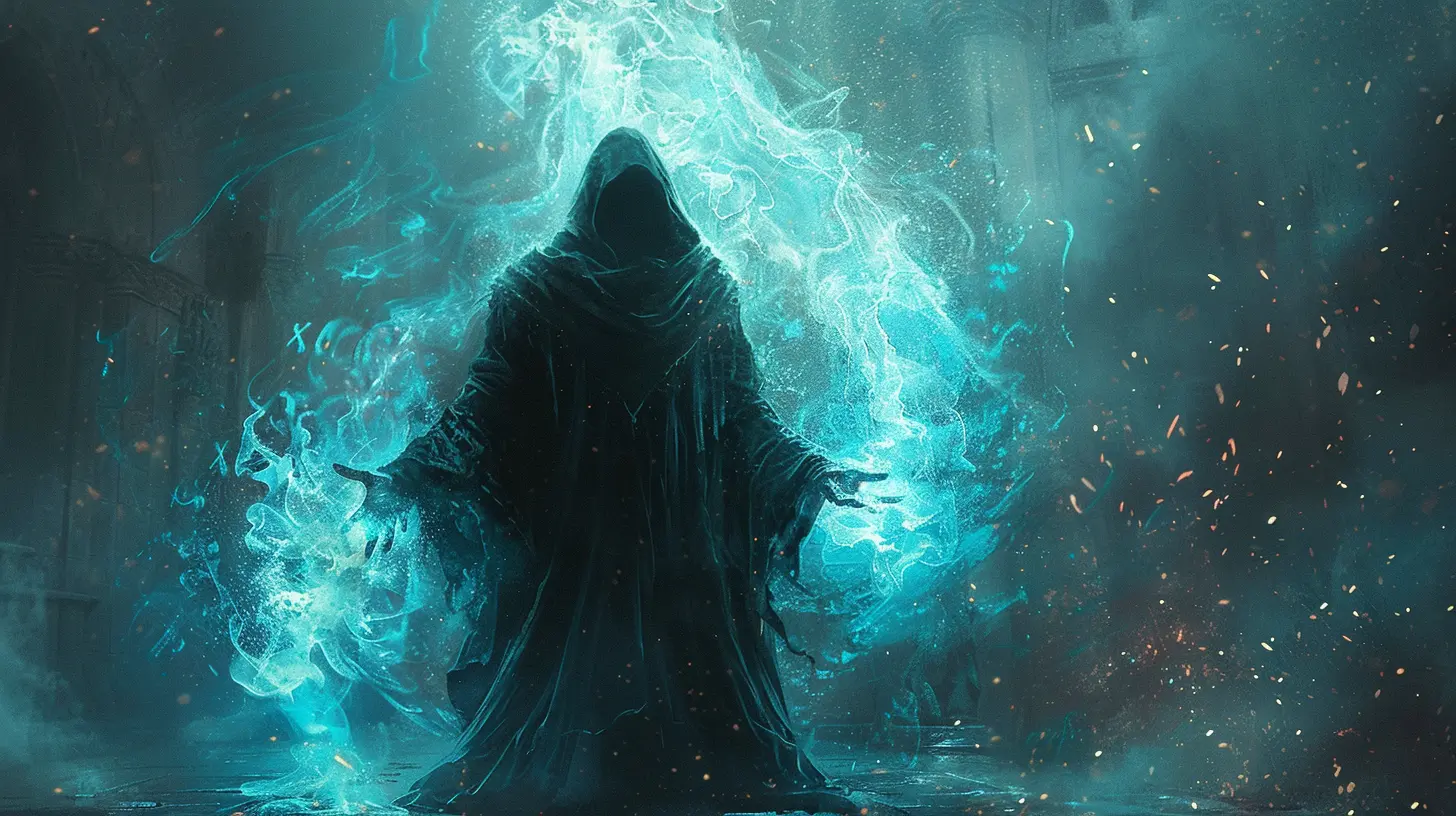
Magic as More Than a System: It’s a Feeling
At its core, the magic system in an RPG isn’t just about what you’re casting or the damage you’re dealing; it’s about the experience. When done right, it makes you feel powerful, creative, and immersed in the game world. It’s that perfect mix of strategy and fantasy—a way to engage both your brain and your imagination.The innovation we see in these systems isn’t just for show. It’s about giving players the tools to create memorable moments. Whether you’re coordinating a devastating chain of attacks with your party or pulling off a last-minute spell that saves your skin, the best magic systems make you feel like the hero of your story. And let’s face it—who doesn’t want a taste of that kind of power?
Conclusion
Magic systems in RPGs are constantly evolving, blending creativity, complexity, and gameplay mechanics to keep players spellbound. Whether it’s crafting custom spells, managing resources, or experiencing the thrill of outsmarting AI opponents, these systems form the heart of any fantasy adventure. Developers continue to innovate, finding new ways to surprise and challenge us with magic.So, next time you’re hurling a fireball or summoning ancient spirits, take a moment to appreciate the artistry behind it. After all, the magic isn’t just on the screen—it’s in the way it makes us feel.
all images in this post were generated using AI tools
Category:
Role Playing GamesAuthor:

Jack McKinstry
Discussion
rate this article
1 comments
Bella McCord
RPGs have revolutionized magic systems, pushing boundaries of creativity and strategy. Embrace the chaos and unleash your imagination—no limits, just pure adventure!
August 18, 2025 at 4:14 AM

Jack McKinstry
Absolutely! RPGs offer endless possibilities, allowing players to explore innovative magic systems that inspire creativity and strategic gameplay. It's all about unleashing that imagination!


